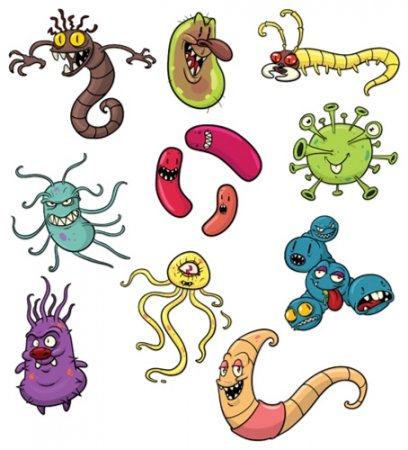Intestinal dysbiosis
Overview
Normally, in the gastro-intestinal tract is home to plenty of bacteria that perform a variety of useful functions: break down plant fibers, synthesize vitamins, inhibit the development of pathogenic micro-organisms, etc. When there is a change dysbacteriosis qualitative and quantitative composition of intestinal microflora - the population of beneficial bifidobacteria and. lactobacilli significantly decreases the number of pathogenic microorganisms and growing.
Causes of intestinal dysbiosis
- Long uncontrolled use of antibiotics;
- Transferred acute intestinal infection;
- Unbalanced diet;
- Chronic diseases of the gastrointestinal tract;
- Alcohol abuse;
- Severe immunodeficiencies (leukemia, AIDS, treatment of cancer radiotherapy and chemotherapy).
Symptoms of intestinal dysbiosis
Symptoms and signs are usually associated with a disease or condition that caused the overgrowth, and are non-specific:
- Abdominal discomfort;
- Increased gas (flatulence);
- Changes in stool (diarrhea, constipation or unstable chair);
- stomach ache.
What you can do
Dysbiosis treatment is a long process. Therefore, your main task is to abide scrupulously by the prescribing physician.
What can a doctor
Diagnosis and treatment of dysbiosis, as a rule, is engaged in the therapist. For diagnosis requires a certain clinical picture and the results of the following tests: coprogram (general analysis of feces) and culturing stool. But for a competent treatment appointment is necessary not only to establish the presence of dysbiosis, but also to identify its cause. In each case, may require a different set of additional research.
Medications used in dysbacteriosis, divided into probiotics and prebiotics.
Probiotics contain live microorganisms - lactic bacteria, bifidobacteria or lactobacilli often who are normal inhabitants of the healthy human gut.
Prebiotics are substances that create an environment for the growth of beneficial bacteria. In most cases, for the treatment of dysbiosis is enough to re-populate the intestine of healthy microflora. And she will win pathogens. Sometimes all the same to fight the pathogenic flora is necessary to use antibiotics. Treatment is carried out at least 4-6 weeks, followed by the control efficacy.
prevention
Equally important for the prevention of dysbiosis has a rational diet and a balanced composition of the food. When antibiotics are recommended in parallel preparations that support the growth and development of normal microflora. Expectant mothers should know that feeding breast milk protects babies from dysbiosis since birth.


